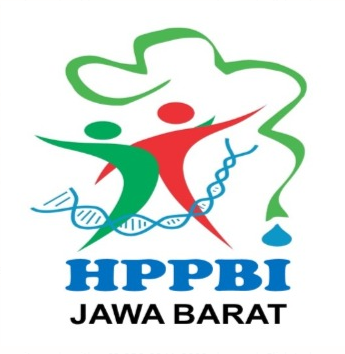Focus and Scope
Journal of Biology Education Research (JBER) publishes original research or theoretical papers, literature review on new knowledge of research, and research application that emphasize issues germane to Biology and Biology Education. Special emphasis is placed on research relevant to Biology Education (including: curriculum of Biology, learning media, learning model, STEM, local wisdom-based learning, teacher professional development, etc), Environmental Education (including: environmental issue, environmental behavior theory, environmental behavior change, waste management, etc), Applied Biology (including: conservation, animal physiology, plant physiology,taxonomy, genetic engineering, microbiology, ecology, etnozoology, etnobotany, etc). The details are:
Biology Education: It consists of theoretical and empirical research studies on Biology Education. We invite manuscripts that discuss about student's ability to acquire and interpret data, pose questions, and critically evaluate evidence, and theories about curriculum of Biology. Moreover, we also encourage author to submit manuscript discussing about learning media. Learning media is everything that can be used to stimulate thoughts, feelings, concerns and abilities or skills of learners so as to facilitate the process of learning. It can be a visual media, audial media, projected motion media, etc. Besides learning media, any framework that defines the mechanism of learning or leaning model also can including in this scope. Basically, it is any form of learning new skills or information. These models have sub-categories that further divide into various learning styles. More point for STEM that define as an approach to learning and development that integrates the areas of science, technology, engineering and mathematics. We can discuss about a harmonious relationship between human and nature too as local wisdom-based learning. Another issue talks about teacher professional development. It involves a continuous process of reflection, learning and action to further a teacher’s knowledge and skills, leading to enhanced teaching practices that positively impact on students’ learning. Lastly, we also open for other issues of Biology Education besides those previously explained.
Environmental Education: Environmental education includes research to explore environmental issues, engage in problem solving, and take action to improve the environment. Largely, this environment issues in Indonesia may discuss about deforestation, water pollution from industrial wastes, sewage, air pollution in urban areas, smoke and haze from forest fires. Besides that it covers student behaviour, thought, school rules and application about environment too. The manuscript can talk about altering habits and behaviors on evirotment such as health-related behaviors, environmental hygene, sustainability action, etc. Moreover, it discuss also about the strategy to dispose, reduce, reuse, and prevent waste. Possible waste disposal methods are recycling, composting, incineration, landfills, bioremediation, waste to energy, and waste minimization. Lastly, we also open for other issues of Environmental Education besides those previously explained.
Applied Biology: Applied biology is the branch of biology that deals with the basic knowledge of plants, animals, and microbes, their uses, and applying this knowledge to many purposes such as economy or business oriented, preliminary study for bioprospecting, etc. It involves the use of living organisms to produce useful products. This applied Biology for Biology Majors allows author to investigate the science of life at all levels, from molecular biology to population ecology. It will discuss about conservation planning, conservation action on wildlife and other Indoensia biodiversity, plant and animal habitat, habitat fragmentation, invasive species, overexploitation, etc. Moreover, it focus on multicellular animals and vascular plants which subdicipline of zoology and botany. It will explore about the ways in which animals and plants acquire and process energy, nutrients and water, with particular attention paid to the relationship between structure and function. The animal physiology part begins with discussing the life processes of multicellular organisms, focusing at the level of organs and whole animals. Meanwhile, the plant physiology part covers the uniqueness of plants and of plant cells, including anatomy, growth and differentiation processes, as well as stress physiology and flowering. It will be oriented as application of study. Besides that, it covers taxonomy too which talks about a scheme of classification, especially a hierarchical classification. It will unfold Biodiversity richness of Indonesia that can be useful for future. Genetic engineering is also being included. It is a process that uses laboratory-based technologies to alter the DNA makeup of an organism. In addition, a diverse group of generally minute simple life-forms that include bacteria, archaea, algae, fungi, protozoa, and viruses or simply we called it microbiology is also our concern. The application of microbiology may cover about biosafety, diagnostic role, quality control, etc. Besides that, the study of organisms, the environment and how the organisms interact with each other and their environment or Ecology is also including in this journal. This application is about contemporary problems in managing our natural resources. It can be defined very broadly to include disciplines such as climate change science, epidemiology, and forestry, it is usually confined more closely to those fields that have emerged from the development of modern ecology. The study about human and animal interaction, human-plant relationship are also being discussed. We called it as ethnozoology and ethnobotany. It will explore more about Indonesia richness on culture, belief relates to nature. Lastly, we also open for other issues of Applied Biology besides those previously explained.









